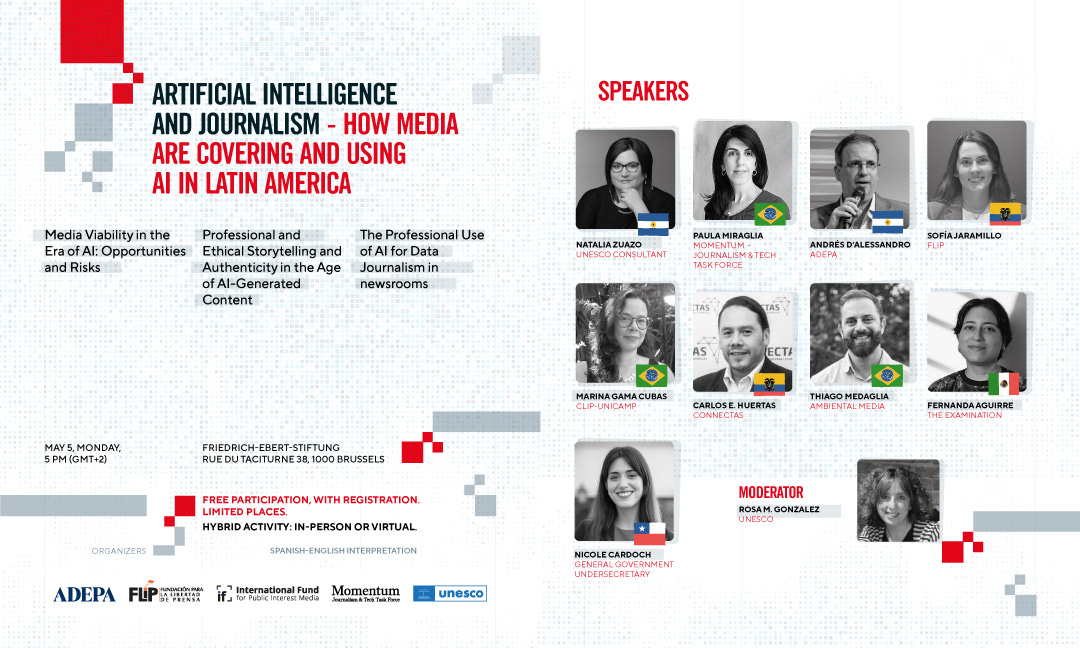🤖 AI Policy this week #050. US Judicial panel proposes to regulate AI-generated evidence; global survey shows trust is still a challenge.
A quick summary of news, reports and events discussing the present and future of AI and the governance framework around its development.
We know AI is permeating all fields, and policy debates are following. Take the judiciary, where a US federal judicial panel has proposed regulating AI-generated evidence. Or the banking industry, where the Financial Services Authority of Indonesia (OJK) has launched AI governance guidelines. AI and journalism was a major topic of discussion during World Press Freedom Day. Meanwhile, a global study found that trust in AI remains a critical challenge.
1. News
US judicial panel advances proposal to regulate AI-generated evidence.
A federal judicial panel advanced a proposal to regulate the introduction of artificial intelligence-generated evidence at trial, with judges expressing a need to swiftly get feedback from the public and lawyers on the draft rule to get ahead of a rapidly evolving technology. The U.S. Judicial Conference's Advisory Committee on Evidence Rules in Washington, D.C., voted 8-1 in favor of seeking public comment on a draft rule designed to ensure evidence produced by generative AI technology meets the same reliability standards as evidence from a human expert witness.
Trump Administration Considers Overhaul of Biden’s AI Chip Export Rules Amid Industry Backlash.
The Trump administration is reviewing major changes to the Biden-era AI chip export regulation, which currently restricts global access to advanced U.S. semiconductors through a three-tiered system set to take effect May 15. Proposed changes include scrapping the tier structure and shifting to a global licensing framework, potentially using chip access as leverage in trade negotiations. Industry leaders like Nvidia and Oracle have criticized the current rules, warning they could hurt U.S. competitiveness and drive countries to seek Chinese alternatives. Meanwhile, new restrictions have already barred Nvidia from selling certain chips, such as the H20, to China, raising concerns about U.S. firms losing market share and accelerating China’s domestic chip development.
White House seeks input to revise national AI research and development plan.
The Office of Science and Technology Policy is looking for public input to revise a national plan for artificial intelligence research and development after a Biden administration update. In a request for information released for public inspection, the White House science and tech shop specifically asked for comments on how a 2023 update to the National Artificial Intelligence Research and Development Strategic Plan could be “rewritten” to maintain the country’s competitiveness on the technology.
Colorado Senate introduces bill aimed at fixing 2024 AI Law to prevent discrimination.
Colorado lawmakers have introduced a new bill to scale back the state’s pioneering AI discrimination law, aiming to reduce compliance burdens for small businesses and clarify key provisions. The proposed changes would delay implementation, limit stringent requirements to larger companies, and refine definitions to focus on AI systems making consequential decisions without meaningful human involvement. The revisions come after concerns from industry and Governor Polis that the original law, set to take effect in 2026, could stifle innovation and disproportionately impact smaller firms. Lawmakers intend for the updated law to better balance consumer protection with business realities, while aligning with evolving national and international AI regulations.
The Financial Services Authority of Indonesia (OJK) launched AI Governance Guidelines for the banking industry.
The framework aims to ensure the responsible development and implementation of AI technologies. These guidelines complement existing OJK policies on digital transformation. This includes the Digital Banking Transformation Blueprint, IT operations regulations, cybersecurity resilience, digital maturity assessments, and the Digital Resilience Guide. OJK expects the AI Governance Guidelines to establish minimum standards for banks in managing AI systems. The initiative addresses AI-related challenges and emphasizes risk management.
Brazil joins Latam GPT initiative.
In the context of the Chilean president's tour, Chile and Brazil signed an agreement for the incorporation of the latter as a key partner of Latam GPT, the initiative around an “open language model with a Latin American identity”. The project, led by the National Center for Artificial Intelligence (CENIA), seeks an AI that understands and reflects the linguistic, social and cultural diversity of the region. The partnership envisages joint model development, academic exchange and access to shared supercomputers.
Duolingo adopts AI-first strategy to cut contractor use.
Duolingo will “gradually stop using contractors to do work that AI can handle,” according to an all-hands email sent by cofounder and CEO Luis von Ahn announcing that the company will be “AI-first.” The email was posted on Duolingo’s LinkedIn account. According to von Ahn, being “AI-first” means the company will “need to rethink much of how we work” and that “making minor tweaks to systems designed for humans won’t get us there.” As part of the shift, the company will roll out “a few constructive constraints,” including the changes to how it works with contractors, looking for AI use in hiring and in performance reviews, and that “headcount will only be given if a team cannot automate more of their work.”
Meta tightens privacy policy around Ray-Ban glasses to boost AI training.
Meta has revised the privacy policy for its Ray-Ban Meta smart glasses, enabling broader data collection capabilities that feed into its artificial intelligence systems — particularly through images and voice interactions. In an email sent to Ray-Ban Meta users on April 29, Meta outlined that AI features will now be switched on by default, including the “Meta AI with camera” function. This means that while using features like the “Hey Meta” voice command, the glasses will process photos and videos in conjunction with Meta’s AI tools. However, a company spokesperson tells The Verge that this visual content remains local to the user’s phone and is not automatically used for AI training unless it is actively shared with Meta AI, a cloud service, or a third-party product.
2. Reports, Briefs and Opinion Pieces:
“Trust, attitudes and use of artificial intelligence: A global study 2025”, by researchers from the University of Melbourne and KPMG.
Authors surveyed more than 48,000 people across 47 countries to explore the impact AI is having on individuals and organizations. “The findings reveal that AI adoption is on the rise, but trust remains a critical challenge - reflecting a tension between the benefits and risks”.
“The Adoption of Artificial Intelligence in Firms. New Evidence for Policymaking”, book by the OECD.
“This book provides evidence for policymakers, business leaders, and researchers to help understand the adoption of AI in enterprises and the policies needed to enable this. The core analysis draws on a new policy-oriented survey of AI in enterprises across the Group of Seven (G7) countries and Brazil, complemented by interviews with business representatives”.
“Regulate or Innovate? Governing AI Amid the Race for AI Sovereignty”, blogpost by New America.
“AI benefits remain concentrated in the Global North, while disruptions disproportionately affect the South, undermining inclusive governance efforts”, it reads.
3. Events:
“RSA Conference 2025” (Apr 28th - May 1st, San Francisco, US).
Agentic AI, identity access management, application security, and data protection dominated the conversation.
World Press Freedom Day 2025: May 3rd. Many events / discussions on Journalism and AI, for example:
“Artificial Intelligence and Journalism: How Media Outlets Are Covering and Using AI in Latin America” (May 5th, Brussels, Belgium.
The discussion, co-organized by UNESCO, the Argentine Association of Journalistic Entities (ADEPA), the Foundation for Press Freedom (FLIP), the International Fund for Public Interest Media (IFPIM), Momentum, and the Journalism and Tech Task Force, was divided into two parts. The first focused on the challenges that AI presents for press freedom, media pluralism, and the economic viability of media in Latin America. The second part highlighted successful cases of media outlets using AI to enhance data journalism, combat disinformation, and protect journalists from hate speech.
“Artificial Intelligence and the Future of Journalism in Bangladesh” (May 3rd, Dubai, UAE).
The panel featured Rezwan Islam from Engage Media; Sharmin Khan, legal consultant at the International Centre for Not-for-Profit Law; Md Saimum Reza Talukder, senior lecturer at BRAC University’s school of law; Miraj Ahmed Chowdhury, founder and executive director of Digitally Right; Minhaj Aman, research coordinator at Digitally Right; and Tajul Islam, journalist at the Business Standard.
Thanks for reading, please share any comments and see you next week.






